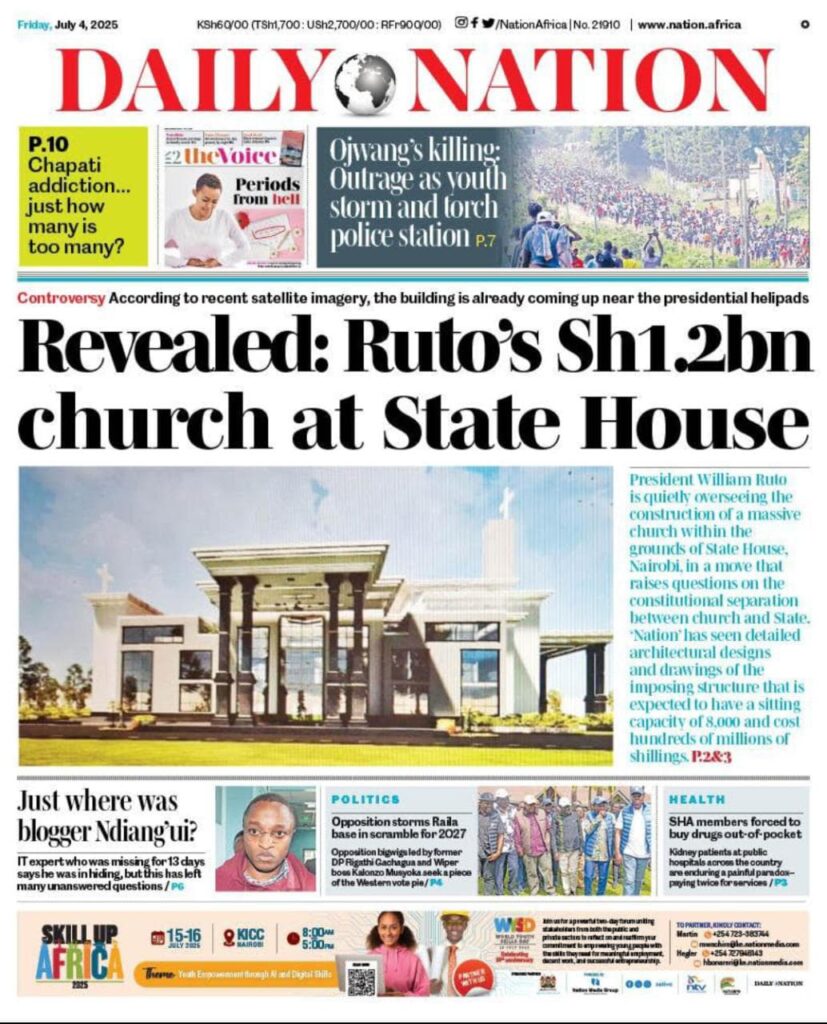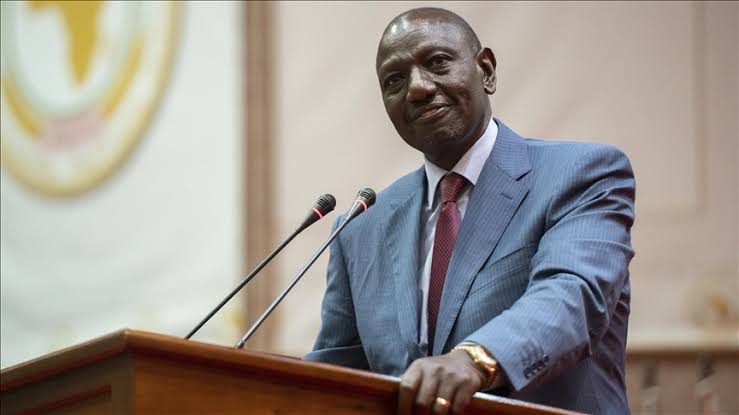President William Ruto is planning to build a church that can hold 8,000 people inside the State House compound, and reports say the project may cost about Sh1.2 billion.
According to a report published by the Daily Nation on July 4, 2025, the architectural plans are already complete. However, the source of funding is not yet known, which is causing public concern.
Many Kenyans are now asking whether public money will be used for the project, especially during a time when the country is struggling economically.
This news has caused mixed reactions on social media, especially on X. Some users are praising the idea, calling it a way to honor God and support moral leadership. Others are unhappy, arguing that the money could be better used to fix hospitals, fund schools, or address poverty.
One user asked why a church should be built at State House while many Kenyans lack basic services. Another user said this move feels like the president wants to remain in power for life.
There are also people defending the plan, saying other presidents have used State House space for personal interests and that this is nothing new.
The church is expected to be one of the largest structures within State House, and given the Sh1.2 billion cost, it adds to the list of expensive projects tied to the presidency.
Recently, another report said State House renovations would cost an extra Sh890 million. With so much money being spent on buildings linked to the presidency, some Kenyans feel the government is not focusing on the right priorities.

They argue that this money could help struggling sectors like health, education, and food security.President Ruto has always shown strong ties with religious leaders.
In the past, he donated large sums of money to churches and has often spoken about putting God at the center of leadership. He even said the church should guide governance. This has raised questions about whether Kenya, which is a secular state according to the constitution, is beginning to mix religion with government functions too closely.
Some people feel building such a big church in a state-owned space favors one religion over others.
The government has not yet confirmed who will fund the project. Without clear answers, many Kenyans are left wondering what this means for the future. Will other religions ask for equal space at State House? Will taxpayers be forced to pay for a project they didn’t approve? These questions continue to spark debate.





















Add Comment